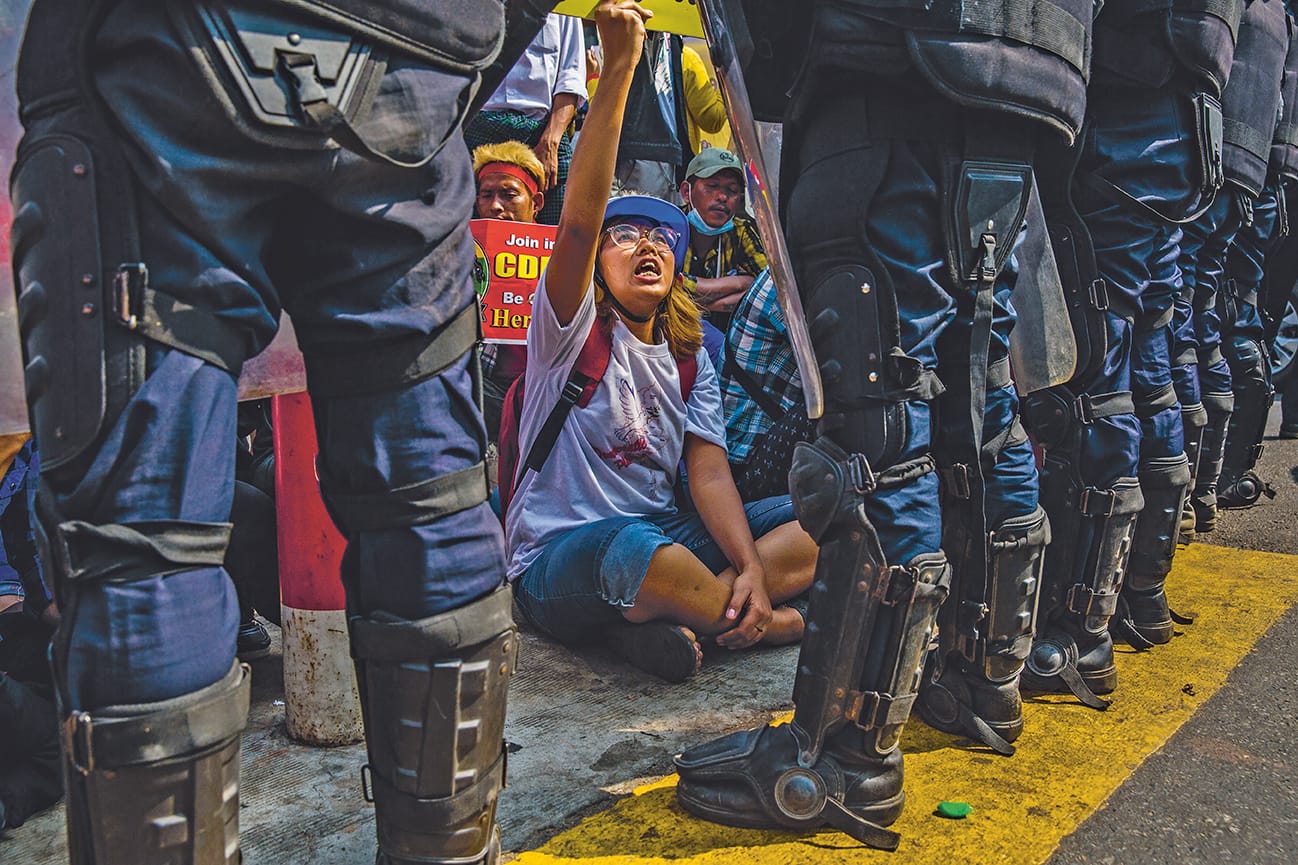Myanmar's Digital Dictatorship
Laura O'Connor

Currents+ is included as part of all print and/or digital subscriptions to New Internationalist magazine. That's a £36 annual value!
A draconian cybersecurity law is blocking Myanmar citizens’ access to information. Passed on 1 January, the legislation bans Virtual Private Networks, or VPNs, which allow users to circumvent website blocks. Although introduced as a crackdown on online crime, it also gives the ruling military junta more powers to search personal devices and jail dissidents.
Digital repression isn’t new to Myanmar – tactics to limit internet access have been well-documented since the 2021 coup when the junta seized power. This new law, however, has formalized what’s quickly come to be described as a ‘digital dictatorship’.
Wint is a young women’s rights and pro-democracy activist from Karen State. Following a crackdown on activists, she fled to Bangkok in 2023. However, as the new law applies to all citizens, including those abroad, Wint can still be targeted.
In Thailand she has continued to work with groups monitoring incidents of gendered violence committed by the junta. ‘I do not feel safe at all,’ she says. Wint avoids using social media for fear of being targeted by spies working for the junta, who collect evidence against dissidents online. Wint says such evidence could be used in a case against her if she returns to Myanmar, or to target her family and comrades. ‘If I were arrested, I would be [charged] with this new cybersecurity law,’ Wint explains.
VPNs are widely used by civilians in Myanmar to access social media and banned international news sites, often to get information on the civil war raging between the junta and various resistance groups. Activists also use them to communicate, hide their location and to publicize the junta’s crimes. ‘[The junta] is intentionally trying to limit access to information,’ says Wint.
But with rebel groups seizing large swathes of territory in recent months, the digital crackdown could be a sign of the regime’s desperation to hold its weakening grip on power.
— Laura O'Connor (@apostrophereads)
📰 Get the context on the country post-military takeover in the Big Story of our July/August 2021 issue and in our Myanmar Country Profile
🕊️ Read more from Laura O'Connor about how women influence peace talks in Myanmar
🤲 Support Mutual Aid Myanmar, a collection of activists, academics, and policy makers working to support the democracy movement in Myanmar.
✊ Take action by boycotting military-linked businesses in Myanmar, as listed here
Read the latest issue of New Internationalist
Like what you've read? Support us with a tip
Looking for more? Listen to our podcast The World Unspun
Shop ethical goods at our very own Ethical Shop

